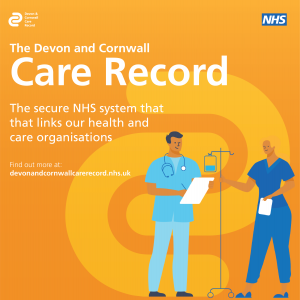Managing behind the scenes
Five years ago at 8.30pm on Monday 23rd March the Prime Minister made a television address to the nation. He announced a stay-at-home order effective immediately. Mr Johnson told people they “must” stay at home and said that “we will immediately” close some businesses. Everybody’s lives were upended overnight and the subsequent two years were difficult and dramatic.
As a GP practice we had to change how we looked after our patients very quickly. Mark Flinton, our Practice Manager, helped us rapidly reorganise how we operated. We needed to make changes to our building; put screens in place, alter entrance and exit pathways, identify and equip ‘hot’ clinical rooms to see possible Covid patients. Although we swapped overnight to a telephone triage and appointment system, we acknowledged that our role was to ensure we kept open. We needed to see sick patients, we needed our dispensary to provide and distribute medication. Mark put procedures in place to reduce the risk of Covid spreading between staff and causing us to shut. When the vaccines arrived, we delivered them with speed and safety. There were strict rules we had to abide by and it took a lot of work to enable us to have these clinics in Silverton. Mark together with the Friends of Wyndham House designed how our vaccine clinics worked. A lot of the innovation from this time continues today in our regular large Flu clinics. Amazingly we kept open and dispensing throughout the whole 2 years. This was all down to incredibly hard work and professionalism from everyone within the team but Mark was the one who spotted problems and solved them, often before they occurred. He kept us emotionally balanced; nothing was ever too bad or too good, everything stayed on an even keel, exactly where we and our patients needed to be.
Mark retired at the end of March after 11 years at Wyndham House. He has been a fantastic member of our team. The GP Practice Manager is very much a behind the scenes job; patients only meet them if they are making a complaint. However, many of you will have met Mark as he often greeted patients for vaccine clinics and for many years it was his voice, with recognisable Mancunian accent, on our answerphone message. The Practice Manager’s role is wide ranging: staff timetables, rotas, training, maintenance of the building, CQC compliance, instigation of new NHS requirements (this happens a lot and change regularly). The critical nature of the skill set required was brought into focus very quickly in March 2020. As I have described Mark rose to this challenge with resilience and determination enabling Wyndham House to manage so well during the subsequent 2 years.
Mark will be missed by us all. His replacement (Mark Dodds) comes with an enormous amount of experience. He has previously managed two GP Practices similar to ourselves: dispensing, rural, high-performance markers with national recognition. However, I am hoping that hardly any patients will meet him and that he will not have to deal with any national emergencies over the next few years.
Anthony O’Brien
Wyndham House Surgery



